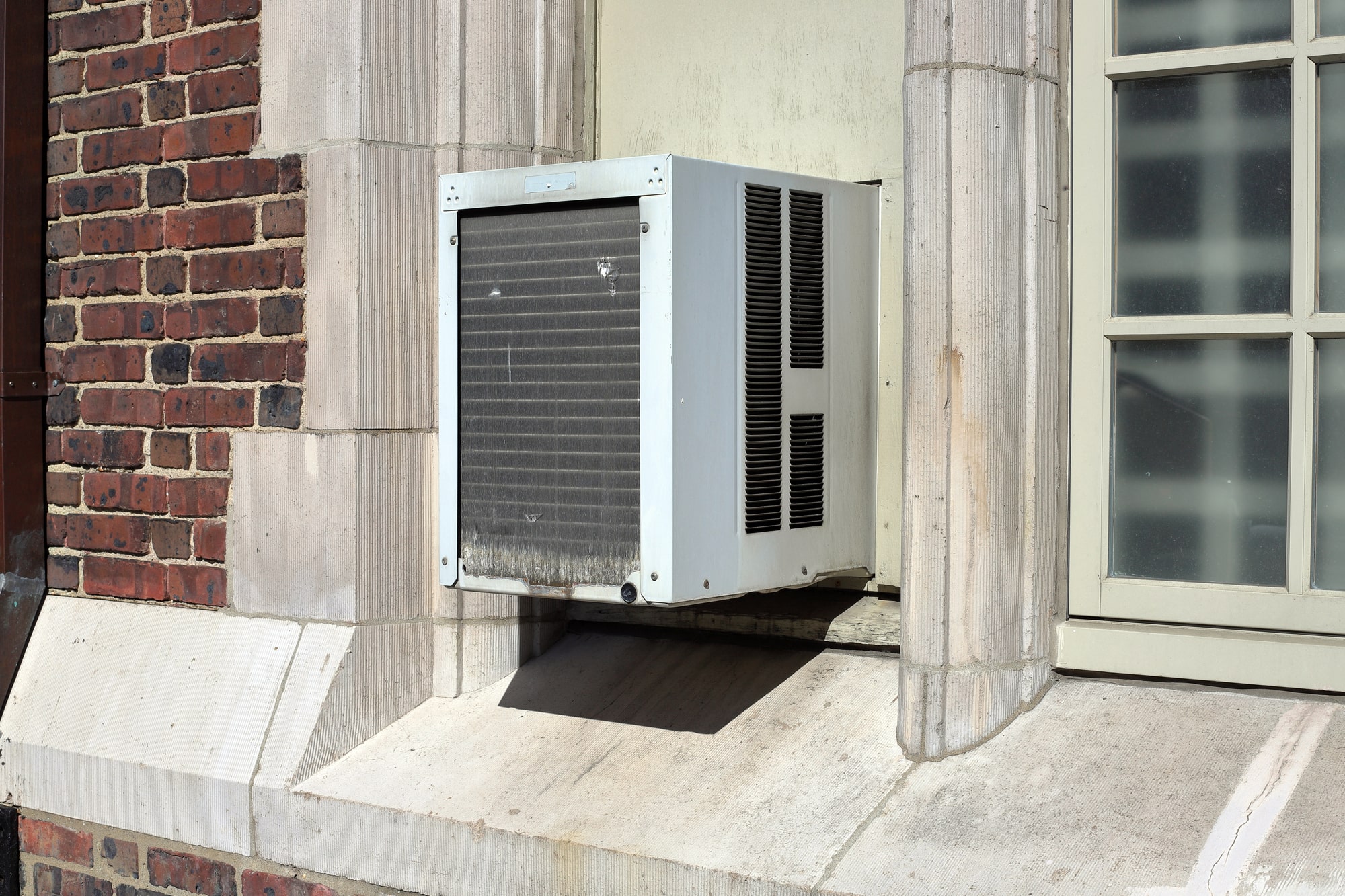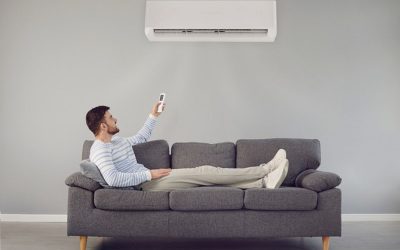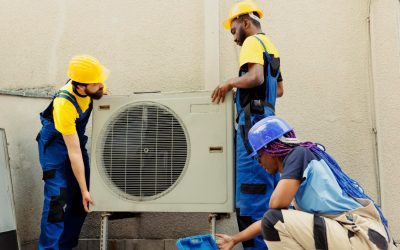Central air conditioning is our preferred choice for most homes in southern Texas. Not everyone lives in a home, however—plenty of folks have apartment suites or live in circumstances that make it difficult or impossible for them to install a central unit.
We want you to stay cool, refreshed, and healthy all year round. That’s why we’ve created this guide to optimizing window air conditioning to keep you comfortable and get the most out of your AC.
Circulate air using fans
Fans are an economical way to get more out of your window air conditioner.
The most obvious benefit of using fans throughout the room is that they circulate the cold air produced by your window unit. Window air conditioners tend to only blow cold air directly in front of them—by circulating the air, your entire room will be kept comfortable and cool.
The fans themselves also contribute to cooling – as long as you make sure to set them to spin counterclockwise in the summer. This is the direction that generates a downdraft, which creates that direct, cooling breeze and also helps with evaporative cooling. In basic terms, that means they make sweating more effective at cooling you down.
Finally, using fans in conjunction with your window AC will make your unit more energy efficient and less prone to wear and tear. Many Texans find that they have to use less powerful settings on their window unit if they’re also using fans.
Keep your doors closed
With central air conditioning, you want to keep all of your doors open (except, of course, for the doors that go outside).
When you’ve got a window unit, that notion is reversed—you want to keep your doors closed.
Window air conditioners are rated to cool a room—nothing more. When you keep your doors open, the unit is effectively trying to cool all open spaces; it won’t be able to do that.
Even if you have multiple window ACs, you’ll still want to keep all of your doors closed to maximize their cooling ability.
Insulate your windows
For your window air conditioner to work effectively, there needs to be a tight seal between it and the window it’s been placed in. Any air that passes between your air conditioner and your window frame or sill is going to reduce your unit’s efficiency.
The window that your air conditioner is in isn’t the only one you need to pay attention to, though. By insulating all of your windows (and doors), you’ll seriously improve your air conditioner’s efficiency.
Insulation prevents airflow—specifically, it will stop the warm air outside your room from flowing into your room. Insulating your windows and doors creates a more comfortable environment—it increases your air conditioner’s lifespan, too.
Clean your filters
Your window air conditioner will have a filter—it’s usually located at the front of the unit. You should be able to remove it by taking off the cover, then lifting a latch or sliding the filter out. Be sure to turn off your air conditioner before removing the filter!
Clean your air conditioner’s filter every month or two. You can clean it by using a soft-bristle brush vacuum attachment and vacuuming away any dust. From there, put the filter into a container full of warm, soapy water—mild dish detergent should do fine. Scrub the filter gently with a sponge or cloth, rinse it thoroughly, then let it dry before placing it back into the unit.
Cleaning your filter regularly will improve your window unit’s efficiency, improve air quality, and lead to a cooler, more comfortable room—all things you want!
Clean the unit’s coils
We recommend cleaning the coils at the same time you clean your filter, since on most window AC units, the coils are found directly behind the filter!
Turn off your unit, remove the filter, then find the coils. These coils have a series of thin metal fins; that’s what you’ll be cleaning. You can use a soft-bristle brush attachment for your vacuum on a low setting, but we’d advise using an old toothbrush or another soft-bristled brush or cloth to gently clean the fins.
Again, here, warm, soapy water and a cloth are your friends. Remove as much grime as possible, then get to washing with a soft cloth. In rare cases, you may need to use a coil cleaner; if you do, be sure to carefully follow the manufacturer’s instructions.
Keep the unit covered
Once you’re finished with any air conditioner maintenance (like the cleaning we covered above), it’s important to place your air conditioner’s cover securely back onto the unit.
You’ll also want to keep the air conditioner covered by a tarp or some other fabric when it’s not in use. This prevents debris from getting into the unit over the off-season, which can restrict airflow.
Finally, you’ll want to keep your unit away from anything that can create debris that might make its way into the unit. Keep plants away from your air conditioner, even when its cover is on.
Schedule maintenance from an HVAC professional
You can get an HVAC technician to diagnose and repair issues with your window air conditioner, but it’s not something that we typically advise. Generally, the cost of repairs for a window AC unit is around $150—the cost of a high-quality window unit is usually around $300-$400. This means that it’s often more economical to simply buy a new unit, especially if the repairs will only last a year or two.
Fortunately, most of the issues that come up can be solved through regular maintenance that you can do yourself.
We don’t offer repairs or maintenance for window AC units, but we do install and maintain mini-split units, central air conditioning systems, or heat pumps. These can all help keep you cool, they’re more energy efficient, and your windows won’t be full of air conditioners blocking your view.
Avoid Common Window AC Unit Problems
Window AC units are prone to issues like refrigerant leaks, drainage clogs and frozen coils. Addressing problems promptly optimizes performance and lifespan. Learn about common window AC unit problems such as leaks, noise and improper airflow. Stay ahead of repairs with preventative maintenance.
What’s Causing Unusual AC Sounds?
Hearing odd noises when your AC starts up could indicate a bigger problem. Issues like refrigerant leaks, motor or compressor failure can produce sounds like squealing, grinding or buzzing. Don’t ignore these symptoms. Learn about common AC sounds and their causes to address problems promptly.






